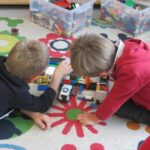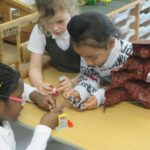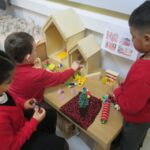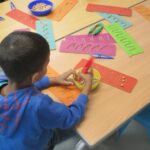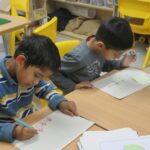Great emphasis is placed on learning to read and write but spoken language underpins ALL learning.
From the ouset we prioritise listening, attending, understanding and speaking. Our playful approach ensures that children are surrounded by spoken language and are not in classrooms where only the adults routinely speak. Alongside the opportuinities to talk and play we deliver well crafted sessions designed to introduce, broaden and enrich each child’s vocabulary and give them the language to think, develop and articulate their thoughts, ideas and beliefs.
Our teaching sequence is designed to introduce subject specific vocabulary that children can then use creatively in play, learnng and writing.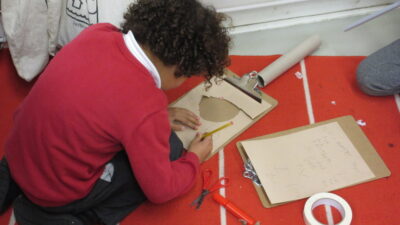
This focus on language supports children’s reading, aiding understanding and supporting fluency, and feeds into their writing.
Alongside our focus on language we aim
To provide a language rich environment that promotes a culture of reading and writing;To develop in children an interest in and a love of books and literature that will not only support their learning across the curriculum but also enrich their lives;
To value and use books as a basis for learning, pleasure, talk and play;
To teach children the craft of writing in order to develop in children the confidence and skills to write well for a range of purposes and audience;
Teach the basics – spelling, grammar, handwriting and punctuation
To foster in children the confidence, desire and ability to express their views and opinions both orally and in writing;
To value and celebrate diversity in culture and language.
English in the Early Years Foundation Stage
All children in the EYFS follow a broad-based curriculum and have a wide range of opportunities to communicate and develop early reading and writing skills.
Resources are used imaginatively and creatively to stimulate curiosity and excitement about the world around them.
Assessments are observation-based and inform planning to build on prior knowledge and understanding.
Speaking and Listening oracy progression
Speaking and listening forms a key element of the teaching sequence for writing and is incorporated throughout the teaching phases. 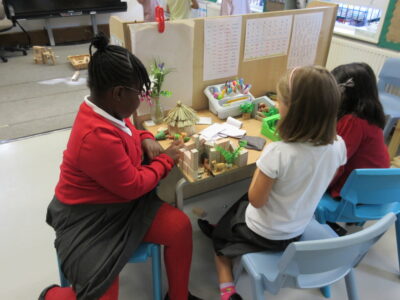
Other strategies include:
- A playful approach to learning where adults model language alongside the children’s play
- Use of learning partners to develop ideas
- Stem sentences and sentence starters e.g. “I think…is the same as …. because”
- Drama sessions and role play areas
- Oral Storytelling using props and small world play
- Language and Word Games
- Chanting, Rhymes and Songs
- A specific focus on developing vocabulary- “word aware”
How we Teach Reading Reading Progression
Reading into writing
Shared reading takes place within English lessons. The teacher models the reading process to the whole class as an expert reader, providing a high level of support. Teaching objectives are pre-planned and sessions are characterised by explicit teaching of specific reading strategies, oral response and high levels of collaboration. The children join in, where appropriate with the reading of the core text. The texts selected are high quality texts that reflect the teaching objectives, text type or classroom topic. We dig deep into our core books which provides lots of repetition which helps all children to develop their language, vocabulary and comprehension.
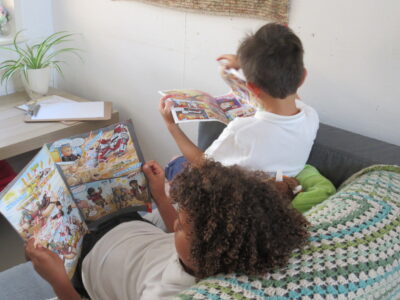 Reading
Reading
Children have daily phonics sessions taught in whole class groups. These involve regular opportunities to rehearse and practice reading and spelling sight words as sentences are dictated.
Children read regularly with adults- more frequently if they require extra support. They have many opportunities to read for pleasure in each class’ book area or the reading caravan.
Reading sessions support children to decode and also retrieve information and ideas from the text and teaches them to read between the lines and make connections both with other texts and with wider experiences. (reading comprehension)
Year 2 have a book club for confident readers. This new initiative is developing children’s comprehension and allows them to share their views on what they are reading.
Library
Our library provides a wide variety of books, texts and other printed materials in a range of genres including fact, fiction and poetry. Children visit throughout the week to choose books and listen to a story read by one of our fabulous parent volunteers.
How We Teach Writing Writing progression
Writing is closely related to reading, with the two activities reinforcing each other. We aim to develop a positive attitude to writing and to extend the children’s abilities to express their thoughts and ideas on paper, thus enabling them to communicate clearly through the written word. We use core texts that link to the topic in order for children to experience the link between reading and writing.
To enable children to develop as effective writers we will teach them to:
- Write for a range of purposes and genres
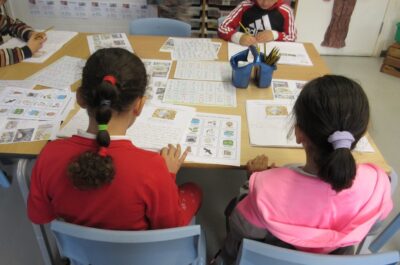
- Plan, draft, revise and edit their own writing
- Organise and structure sentences grammatically and whole texts coherently
- Use accurate punctuation and spelling
- Have fluent and legible handwriting.
When children are writing adults will:
- Support the child to structure their ideas
- Revise, edit and improve, giving feedback during the process and encourage children to check their own writing
How we teach Spelling
Spelling enables us to become more effective writers. As part of our phonics sessions children learn to read and spell common words. Once remembered this frees up thinking time for the content of the writing.
How we teach Handwriting
Letter formation and pencil control is developed in the EYFS curriculum as part of learning in Physical Development and writing (linking the letter formation with the letter sounds).
In Year 1 these skills are embedded and developed further through regular ongoing practice as children write each day.
Helping at home
We ask that you read to your child as often as you can. When they begin to read we ask that you listen to them in a relaxed way, talking about the pictures and asking questions about what they are reading.
Assessment
Progress is tracked and evaluated to
- Identify pupils in need of either support or extension
- Identify areas of difficulty or areas of strength
All of this evidence contributes to the overall picture of achievement for each child. All of our assessments inform future learning and enable us to quickly support any child at risk of falling behind.

